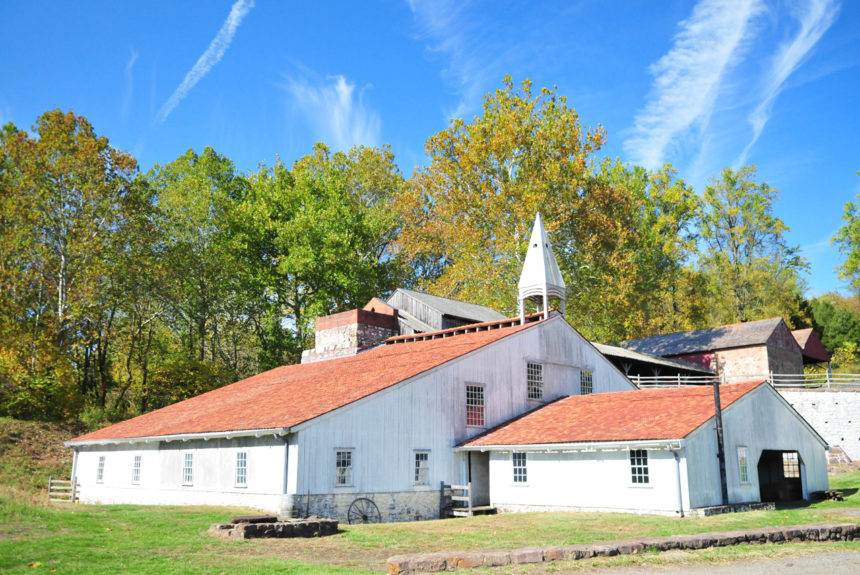By Kelvey Vander Hart
Last summer the Great American Outdoors Act (GAOA), one of the most important pieces of conservation legislation in recent memory, was signed by President Trump. While many Americans didn’t know very much about the historic legislation, others that care about conservation and the environment cheered its passage. But for certain individuals and groups around our nation, the passage of the GAOA was personal. One such group is Friends of Hopewell Furnace, and for them, it could make a huge difference in how history is told.
While many focused on the impact on well-known national parks like Yellowstone or Yosemite, national historic sites that also benefit from this legislation have remained out of the spotlight. Hopewell Furnace National Historic Site is a key example. Located in southeastern Pennsylvania, the site is the history of American industrialization frozen in time.
Hopewell was an “iron plantation” that was operational from 1771-1883. For over 100 years, through the American Revolution and the Civil War, the ironmaking community that lived and worked there helped fuel the United State’s transition into an industrial giant. The history of Hopewell Furnace is extensive and far too lengthy to properly dig into here. However, one important connection between Hopewell’s history and GAOA funding, especially during Black History Month, is the contribution of African Americans.
Much is still unknown about the history of the African American workers of Hopewell Furnace, but we know enough to see that the story is not a happy one. Pennsylvania businessman Mark Bird, Hopewell Furnace’s founder, enslaved the most people out of everyone in Berks County. Enslaved persons and, later, freedmen served as woodcutters, laborers, and teamsters on the property.
But even while the African American community struggled under oppression and hard labor at Hopewell Furnace, a brighter piece of history was playing out in the nearby community. In 1856, the community of Six Penny Creek established an African Methodist Episcopal Church, which became the site of what is now the oldest African American cemetery in Berks County; many laborers from Hopewell Furnace are now buried there. Historians also think it was very likely that the church served as a stop on the Underground Railroad.
The Friends of Hopewell Furnace are optimistic that, thanks to the funding available through the GAOA, the history of African American labor at Hopewell will be recognized as it should be. The markers around the grounds are over 40 years old, and since most of what we know about the African American community that worked at the furnace comes from recent research, their story has remained officially untold to the site’s 50,000 annual visitors.
Edie Shean-Hammond, a board member of Friends of Hopewell Furnace, explained why this update is so important:
“The African American community and their stories [at Hopewell], stories of colliers and blacksmiths [are not being represented]. It’s important to understand those stories and make those connections so there is pride in your heritage. It’s critically important to the health of the community.”
The group has been talking about the need to update these markers for a long time, and they have the support of the site administration. However, their funds are limited, so they have been unable to make these updates on their own.
Other GAOA projects for Hopewell will include replacing critical systems at the museum storage facility and rehabilitating various complexes across the site. These projects, with price tags in the tens and hundreds of thousands, look like giants compared to the initiative to update markers. But to the African American community and all who want to see their story told, new site markers are invaluable updates.
Kelvey Vander Hart is a native Iowan, a member of the American Conservation Coalition, and a communications specialist at Reason Foundation.
The views and opinions expressed are those of the author’s and do not necessarily reflect the official policy or position of C3.
